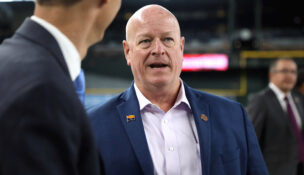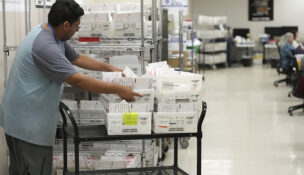‘We’re going to try to be much more strategic in Committee of the Whole debates’
Arizona Capitol Reports Staff//January 12, 2007//[read_meter]
‘We’re going to try to be much more strategic in Committee of the Whole debates’
Arizona Capitol Reports Staff//January 12, 2007//[read_meter]
The last two sessions have left House Minority Leader Phil Lopes fit to be bow-tied, so to speak. This year is different, though, as there is a sense of hope...
No tags for this post.

















